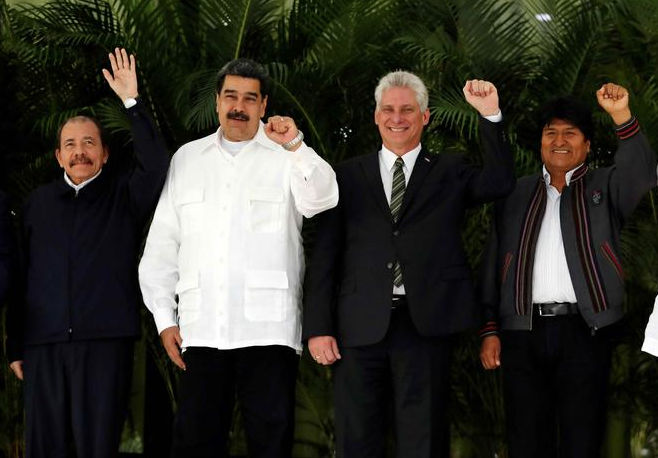From the perspective of international law, Russia’s aggression against Ukraine cannot be excused. However, while no Latin American country voted against condemning Russia at the United Nations General Assembly, countries such as Bolivia, El Salvador, Nicaragua and Cuba abstained, and Venezuela was absent. In this sense, the positioning of some political actors of the Latin American left generates consternation.
For the former Mexican ambassador to the United States, Martha Bárcena, her country’s vote came to define an official position that finally “took the right direction, as a result of the work of the Mexican mission to the United Nations”. It was the correction to the ambiguities of the discourse of Andrés Manuel López Obrador, who, according to the ambassador herself, was being pushed to distance himself from a clear and forceful condemnation of the invasion by the most orthodox wing of his own party, Morena.
The initial ambiguity of the Mexican government is symptomatic of the difficulty that certain Governments and political forces of the Latin American left have had in positioning themselves in this new international political juncture.
The Grupo de Puebla, which brings together leaders of Latin American progressivism, also limited itself in its declarations of both substance and form. In its statement on February 24, it made a “cordial appeal to the parties involved to maintain peace and security in Ukraine by abandoning the path of military intervention and unilateral economic sanctions against Russia”, but without mentioning the words “invasion” or “aggression”. However, two days later, the Grupo de Puebla issued a second statement condemning “the unilateral use of force and the grave humanitarian consequences.”
The reading of the international juncture, made and still made, by part of the Latin American left is influenced by different factors. Some of them are evident. For Cuba, Venezuela and Nicaragua, the issue is to maintain a good relationship with the States that represent a counterweight to the United States, and to which they can resort to overcome the sanctions and enmities they have with the northern neighbor. This implies not only giving a nod to Russia, but also maintaining a certain harmony with China, which is also avoiding condemning Vladimir Putin’s aggression.
This geopolitical positioning is similar, but not the same, as the one that seeks to distance itself from any kind of aggressive action towards Russia, such as those implemented by NATO members and the European Union. Here also prevail commercial interests and expectations regarding possible foreign direct investment, especially from China. This group includes not only countries that define themselves as center-left, such as Argentina, but also right-wing governments, such as the case of Jair Bolsonaro.
But what one regrets most is that there are narratives that denote an ideological perspective that still persists in the region despite its limitations: “naïve anti-imperialism”. This still believes in the official discourse of the State apparatus of Cuba, Venezuela and Nicaragua, and is willing to subordinate a coherent progressive position to orthodox Manichaeism in which everything the U.S. does is contrary to the interests of the revolutionary spirit.
Within the framework of this crude Manichaeism, the war in Ukraine has been presented as one more episode of American hegemony, which uses NATO to achieve its objectives. There is a paradigmatic question posed in the Prensa Latina media: “What is the objective of the United States to defend an unpopular government so far from its shores? From that perspective, this left has made a series of conceptual contortions, which basically justify the invasion of a sovereign country by a major military power, something unacceptable when it comes to Latin America.
In the article “Naïve anti-imperialism and westplaining that outrage Central and Eastern Europe”, it is stated how the Polish left has been surprised by the paralysis in the position-taking of its fellow travelers on a global scale, but particularly mentioning Latin America and Spain.
What is criticized is that this naïve anti-imperialism presents the process of NATO “expansion” as a unilateral will of the U.S., when the enlargement was not a unilateral incorporation of the countries of the former Soviet Union by the U.S., but a process by which applications to join the club were accepted. Each entry was based on a sovereign decision by independent nations seeking to come under NATO’s defensive umbrella. These countries did so precisely because of the fear of Russia’s imperial drive, which after the fall of the Soviet Union seemed unlikely, but which with Putin has become evident.
In the Budapest Memorandum of 1994, Russia, the U.S. and United Kingdom agreed to Ukraine’s accession to the Treaty on the Non-Proliferation of Nuclear Weapons, whereby Ukraine would get rid of its entire nuclear arsenal. In the same document, Russia undertook to respect Ukraine’s independence and territorial integrity. Curiously, in that occasion, this document was presented to the United Nations Secretary-General by the Russian Ambassador to the United Nations, Sergey Lavrov, now Russia’s Foreign Minister.
Evidently, that commitment has been breaking down to the point that today we are faced with the shelling of unarmed civilians. The Russian invasion of Ukraine should lead those traditional Latin American leftists who have fallen into the dangerous path of denial to reconsider their positions. Where is fascism if not in that terrible statement by Putin in which he declares to be “convinced that this necessary and natural self-purification [sic] of society will strengthen our country, our solidarity, our cohesion and our capacity to respond to any challenge?”
Translated from Spanish by Janaína Ruviaro da Silva











